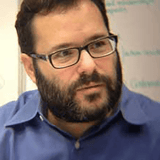Log in or create a free Rosenverse account to watch this video.
Log in Create free account100s of community videos are available to free members. Conference talks are generally available to Gold members.
Summary
Over the past decade, user research has matured significantly. It’s increasingly more common for large organizations to have dozens of people doing user research, whether as part of a dedicated team of researchers or other design roles. Growing team sizes and increasing organizational demand has meant that the pressures placed on people doing research have grown too. To meet demand and be efficient, impactful, compliant (and happy, lest we forget), researchers need more rigorous operational support. In 2018, through the work of the ResearchOps Community and its #WhatisResearchOps initiative, the nascent practice of ResearchOps was given shape: via a series of global workshops by researchers and for researchers, the Community explored what ResearchOps should look like and produced a framework to map its various parts. But what’s behind the theory? What does ResearchOps actually look like in the world today? And who are the people leading the way? In this talk, Kate shared insight into the state of ResearchOps today, talked about current and potential ResearchOps opportunities and challenges, and shared what she thinks the future holds for this emerging practice.
Key Insights
-
•
Research operations provides roles, tools, and processes to support researchers but is distinct from research leadership.
-
•
A research Ops team requires multiple specialized roles and cannot be effectively handled by one person.
-
•
A recommended ratio is one research Ops person per five researchers to deliver core priorities.
-
•
Effective research Ops involves designing efficient processes, not just shifting workload from researchers to Ops teams.
-
•
Scaling research Ops teams early is critical; delaying scaling reduces ability to demonstrate value.
-
•
Research Ops teams manage a wide range of activities including participant recruitment, vendor management, legal, tooling, events, and engagement.
-
•
Research Ops people often come from service industries like hospitality or recruiting rather than research backgrounds.
-
•
Balancing supportive service and strategic prioritization (including knowing when to say no) is a key challenge.
-
•
Collaboration with leadership, legal, procurement, design Ops, and devops is crucial for research Ops success.
-
•
Creative engagement roles in research Ops help maintain team morale and communicate research impact beyond traditional reports.
Notable Quotes
"Research Ops provides the roles, the tools and processes needed to support researchers."
"It’s very easy to underestimate how much it takes to deliver operations, particularly research recruitment."
"As soon as you’ve got five researchers get yourself at least one Ops person to start showing value."
"Research Ops is not research leadership or deciding on research strategy."
"One person can’t run research Ops effectively; it’s a multi-skilled, multi-person job."
"Highly supported self-service is the path forward; enabling researchers to self-serve with support."
"Balancing the ‘yes, yes, yes’ mindset with knowing when to say no is key for sustainable service design."
"The longer you take to scale your Ops team, the harder it becomes to amplify the value of research investment."
"Collaboration with legal, privacy, procurement, and estate teams is often even more frequent than with research teams."
"Creative engagement roles provide a 20% creative outlet, vital for morale when other parts of research Ops can be dry."
Or choose a question:















More Videos
"If design didn’t move the needle, we wouldn’t be having this conversation."
Standardizing Product Merits for Leaders, Designers, and Everyone
June 15, 2018

"Most strategy today is guesswork based on what others are doing, not based on situational awareness."
Simon WardleyMaps and Topographical Intelligence (Videoconference)
January 31, 2019

"White supremacy is the belief system of the superiority of whiteness that can embed itself in algorithms."
Sandra CamachoCreating More Bias-Proof Designs
January 22, 2025

"I felt on edge around Jeff and physically depleted after our interactions."
Darian DavisLessons from a Toxic Work Relationship
January 8, 2024

"Having conversations with stakeholders before sharing AI-generated recommendations validates their legitimacy and relevance."
Fisayo Osilaja[Demo] The AI edge: From researcher to strategist
June 4, 2024

"Temporary, quick, and sometimes rough artifacts have a lifespan just long enough for the conversation they enable."
Uday GajendarThe Wicked Craft of Enterprise UX
May 13, 2015

"No official kickoff was held, which meant shifting expectations and lack of alignment."
Davis Neable Guy SegalHow to Drive a Design Project When you Don’t Have a Design Team
June 10, 2021

"We did a great cleanup of patterns from every decade and deleted anything off brand or untested."
Eniola OluwoleLessons From the DesignOps Journey of the World's Largest Travel Site
October 24, 2019

"At Qubits, you can customize or copy standard design processes like Lean UX and add or remove activities easily."
Aurobinda Pradhan Shashank DeshpandeIntroduction to Collaborative DesignOps using Cubyts
September 9, 2022
















